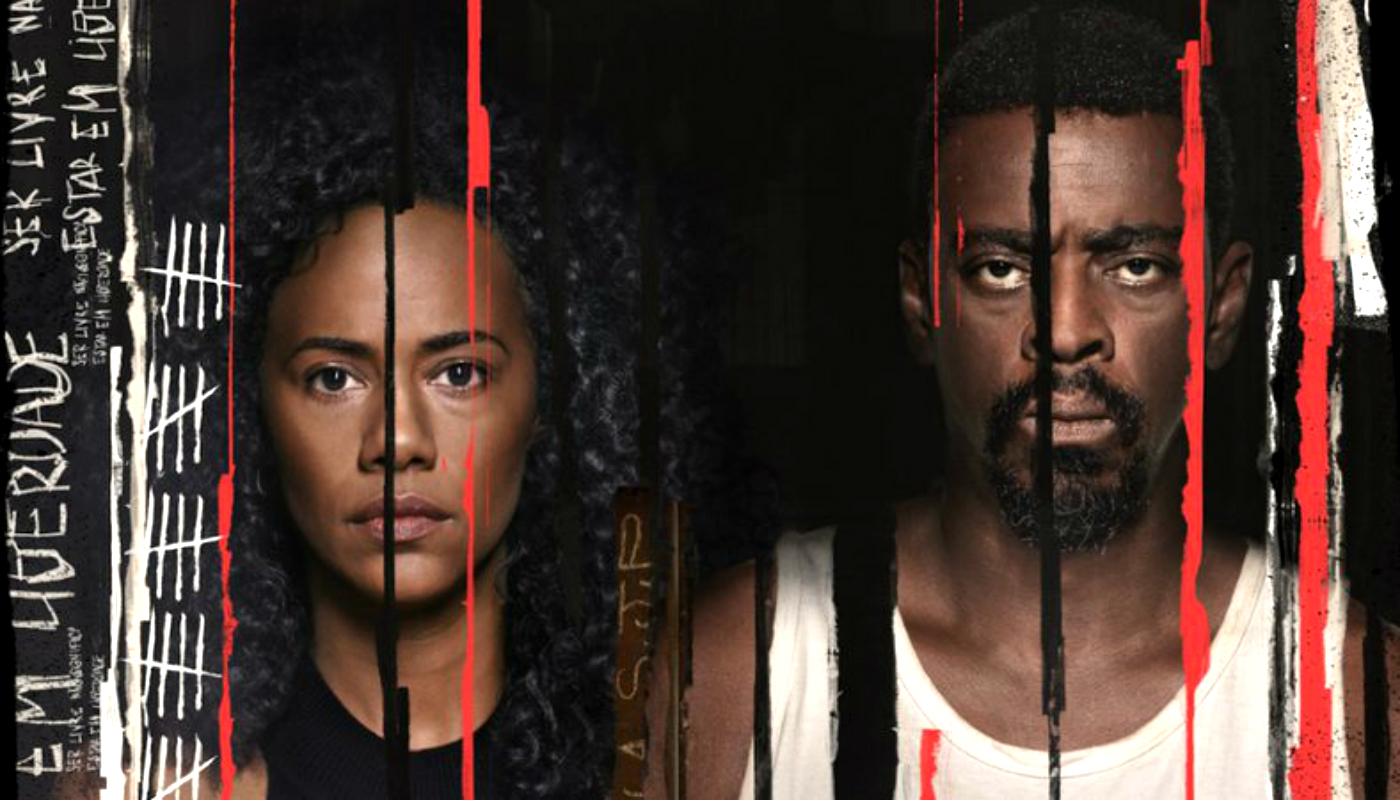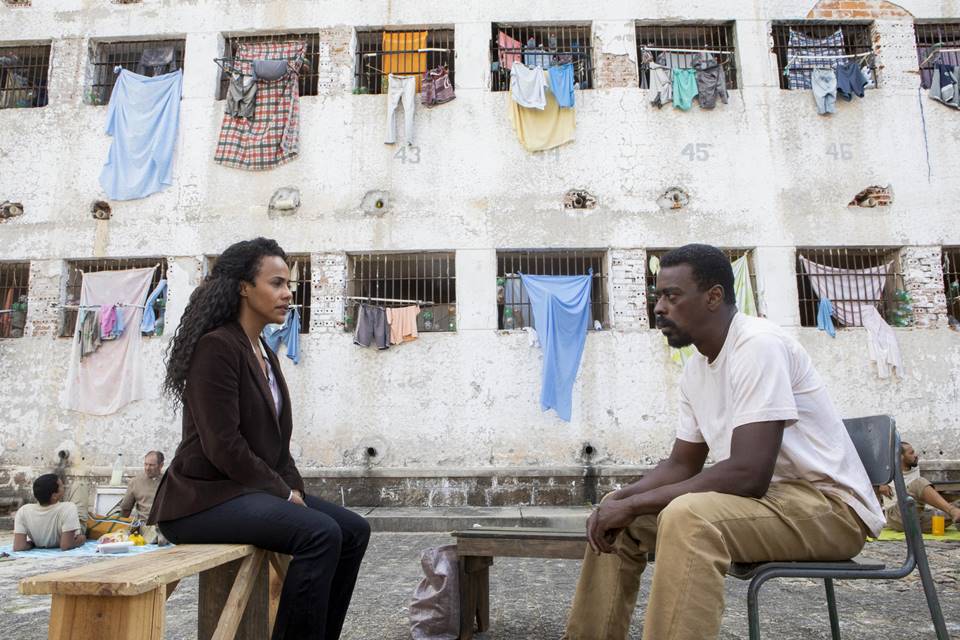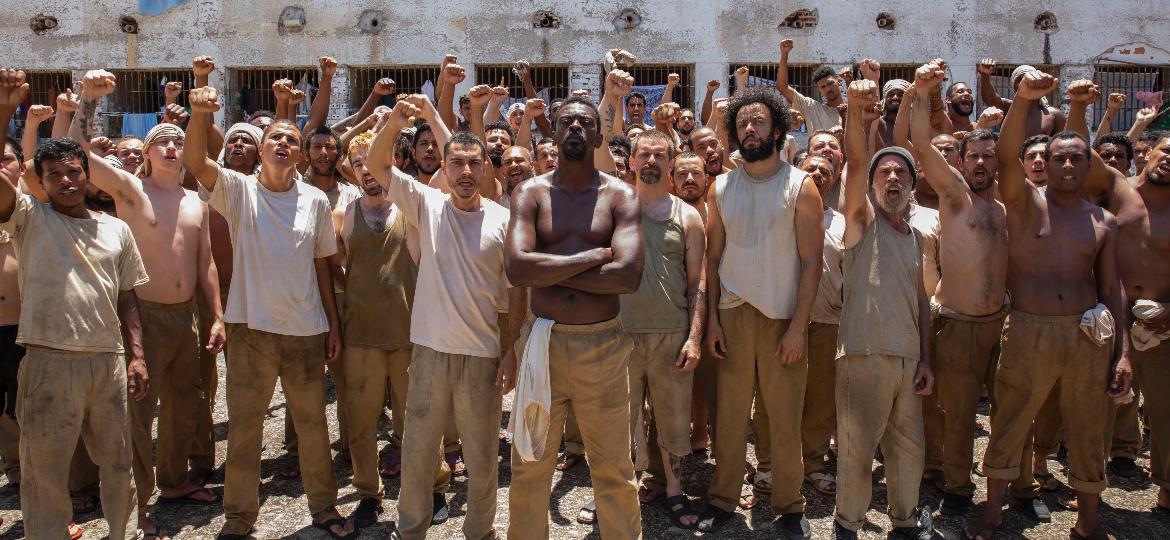RIO DE JANEIRO, BRAZIL – In a favela in São Paulo, a girl sees the police beat her brother before he is arrested on drug charges. Years later, she becomes a lawyer, and he takes on the leadership of a criminal faction.

The fictional series ‘Irmandade’ (“Brotherhood”), which premieres on October 25th on Netflix, has two very feasible interpretations. It refers to the family relationship of two characters who were born in the same wooden shack and who lead different lives under the perspective of justice. It also makes reference to the PCC (Primeiro Comando da Capital) criminal organization, or the declared fraternity between those who, as members of the São Paulo faction, call each other by using the very term “brother”.
Interpreted by Naruna Costa and Seu Jorge, the blood brothers will tell in their stories the dubious means used by the courts and the police to deal with the poor in the country.
“Irmandade”, according to its creators, humanizes those who are portrayed as enemies of the ethics imposed by the so-called war on drugs in the news. It does not shy away from the duty of generating an audience, producing something that other countries besides Brazil will use as entertainment. But, as Pedro Morelli, creator and director of the series says, it seeks to be responsible in not distorting a reality so dear to Brazilians.
Morelli does not deny that the choice of topic has a sales base. “Certainly there’s a very strong market side, the business of drug trafficking is almost a genre [on TV],” he says.
“Our intention was to provide entertainment, to have the tension that this genre generates. There is espionage, an undercover person, and at the same time there is a discussion that seeks to understand why organized crime is the way it is”, he says.

In the course of “Irmandade”, we will realize that the word does not carry the sweetness embedded in children’s fables in the style of John and Mary. Among brothers, there is love, but also betrayal, anger, cheating.
Felipe Sant’Angelo, one of the six screenwriters in the series, says that the team was careful to show the origin or reasons for the violence committed both by those who join crime and by those who try to fight it.
According to them, this “responsibility” involves a theoretical deepening. Behind the story of the “Irmandade “, there are interpretations of reports and academic theses on the subject, says Leonardo Levis, another scriptwriter.
“We tried as hard as we could to ensure that this series was not irresponsible towards important issues in the country,” he says. According to Levis, it was not only necessary to be attentive to the approaches already seen in productions of the genre, but also to take into consideration “the things that are not talked about” on the subject.
What the public will see is something that is based on what would have been the birthplace of the PCC, the schools of crime within the Brazilian prison system. This approach gives rise, for instance, to quaint references to everyday life in jails, such as the clandestine manufacture of an alcoholic beverage called Maria Louca, a kind of rotgut schnapps.

Asked about the make-up of screenwriters and directors, Morelli told the report that there was a concern for the diversification of professionals according to their social classes, races, and genders.
Actress Naruna Costa says she lived close to the world depicted in the series during her youth. She was born and lived in the outskirts of Taboão da Serra, in Greater São Paulo. “The series takes place in the 1990s, and the periphery of the 1990s is part of my history,” she says. “It’s an excerpt from an era and, even after 30 years, what happened is still reflected in our daily lives.” He says, “The series is a part of my history.
In the suburb, the actress has always felt “very protected” by her family. “They have always made a point of imposing a certain strictness on our education. We were three women growing up in the house, so we had a lot of protection from our parents,” she says.
Still, violence was around. “It began to emerge in the outskirts and was dealt with very naturally,” she says. “We saw this violence happen, particularly on weekends”. Every day, according to her, the police would enter the favela, and “massacre was sadly something banalized,” she says. “Obviously, I watched all this closely. I had no friends in this universe. But I saw people who were very close to me, neighbors, going away, losing their children because of this reality that still persists today,” she says.
There are many scenes filmed in a prison in Paraná State still in activity. And the favela where the characters live in their childhood is not a set design, but a community in Cubatão. “We started recording there, in this living prison, knowing that there were inmates while we were filming, a place that has a history, that has a memory, was essential for the cast as a whole,” says Naruna.
“This demanded a real responsibility from us,” she continues. “It is not a memory that we had to build. It wasn’t a built-up scenario, a place where we could set foot outside without being moved by it. The commotion was there every day, like the times when we would come to record and look at the women we were going to visit [the prisoners],” she tells.
She also mentions the favela that is shown in the series in scenes depicting the characters in the 1970s. Even today, after 40 years, it was not difficult to find “a community built with wooden shacks, on top of a sewer”. A real-life precariousness, says Naruna, to which the spectator will have access through a fictional work.
Source: Folhapress

